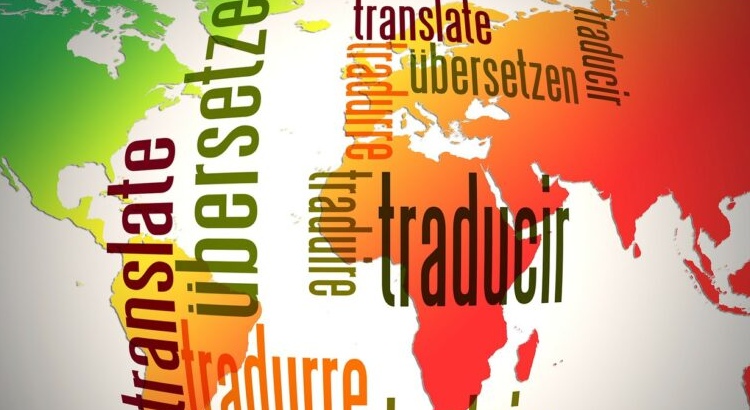Translation vs. Interpretation: Key Differences and Which You Need
The difference between translation and interpretation often causes confusion. Knowing which service is right for you can make international business smoother and build stronger partnerships across languages. In this guide, you will learn the main differences, similarities, types, and how to choose between translation and interpretation for your needs.
The Growth of Language Services
Language services have grown rapidly as more businesses go global. In 2020, the translation services market reached $39.37 billion and is expected to rise to $46.22 billion by 2028 (Verified Market Research, 2020). This growth means more companies need ways to overcome language barriers, whether through translating documents or interpreting live conversations.
Translation vs. Interpretation: Definitions and Core Differences
While both translation and interpretation break language barriers, they are not the same. Here’s what sets them apart:
What Is Translation?
- Translation is the process of turning written text from one language into another.
- Translators work with documents, websites, reports, books, and other text-based materials.
- They use tools such as automated transcription software and translation memory technology to ensure quality and consistency.
- Accuracy is high because translators have time to revise and review their work.
What Is Interpretation?
- Interpretation is converting spoken language into another language in real time.
- Interpreters work at meetings, conferences, hospitals, courts, and live events.
- Speed is key, as interpreters must listen and speak almost instantly.
- Accuracy depends on quick thinking; some small details may be condensed to keep pace with speech.
Main Differences Between Translation and Interpretation
- Format: Translation deals with written words; interpretation handles spoken language.
- Timing: Translators have hours or even days; interpreters work immediately, often seconds after the original speaker.
- Delivery: Interpreters work on-site, by phone, or through remote video, while translators work offline on documents.
- Tools: Translators use dictionaries, software, or even AI transcription subscriptions to help them. Interpreters rely on memory, deep language knowledge, and fast processing.
- Skills: Both roles require fluency, but interpreters also need strong listening and speaking skills under pressure.
Similarities Between Translation and Interpretation
Though different, translation and interpretation share important qualities, including:
- Language Fluency: Both need expert knowledge of at least two languages.
- Subject Knowledge: Professionals often need extra training. For example, legal interpretation and legal translation services require knowledge of law in both languages (Bureau of Labor Statistics, 2022).
- Professionalism: Meeting deadlines, keeping information confidential, and representing clients well are vital in both fields.
- Cultural Understanding: Both translators and interpreters must understand idioms, culture, and customs so the message connects with the target audience.
Types of Translation Services
Translation is needed in many settings. Here are the main types:
- Legal Translation: For contracts, court documents, and laws. Accuracy and formal language are critical.
- Technical Translation: Manuals, patents, and guides in engineering or IT require precise wording.
- Medical Translation: For clinical trials, prescriptions, and records. Mistakes can have serious effects.
- Financial Translation: Reports, bank statements, and audits require both accuracy and security.
- Marketing Translation: Adapts brochures, social posts, and slogans for new markets. Creativity helps the message resonate.
- Software and Website Localization: Makes digital products feel local in every language.
- Certified Translation: For official documents like diplomas and certificates, often required by governments.
- Literary Translation: Novels, poetry, and plays, where tone and style matter as much as meaning.
- For multimedia content, subtitling and closed captioning services ensure accessibility across languages.
Types of Interpretation Services
Interpretation also comes in various forms to fit different situations:
- Simultaneous Interpretation: The interpreter speaks at almost the same time as the original speaker. This is common at international conferences and requires special equipment.
- Consecutive Interpretation: The speaker pauses every few sentences for the interpreter to translate. This suits smaller meetings or legal proceedings.
- Whispered Interpretation: The interpreter whispers the translation to a small audience. It is used when only a few people need a different language.
- Remote Interpretation: Done via phone or video call, which is popular for telehealth or online events.
Translation vs. Interpretation: Which Service Should You Choose?
Picking the right service depends on your needs:
- Choose translation if you need a written document, website, report, or multimedia file converted to a new language.
- Choose interpretation if you plan a meeting, conference, medical visit, or event with speakers of different languages.
For projects with complex or sensitive content, professional help matters. Accurate translation or skilled interpretation can prevent misunderstandings and build trust.
How GoTranscript Can Help With Translation and Interpretation Needs
GoTranscript is a leader in language solutions for global businesses. We offer text translation services for all document types, along with audio translation services and support for subtitles and captions.
- Need transcripts? Explore our transcription services or proofing with transcription proofreading.
- For video content, we provide accurate closed captioning and subtitling services.
- Budget-conscious? Check our transcription pricing and captioning rates.
Unsure what you need? Contact the GoTranscript team for expert advice or order transcription or order captions online. With worldwide trusted services, GoTranscript helps you connect, communicate, and grow—anywhere in the world.



















 Verified Order
Verified Order